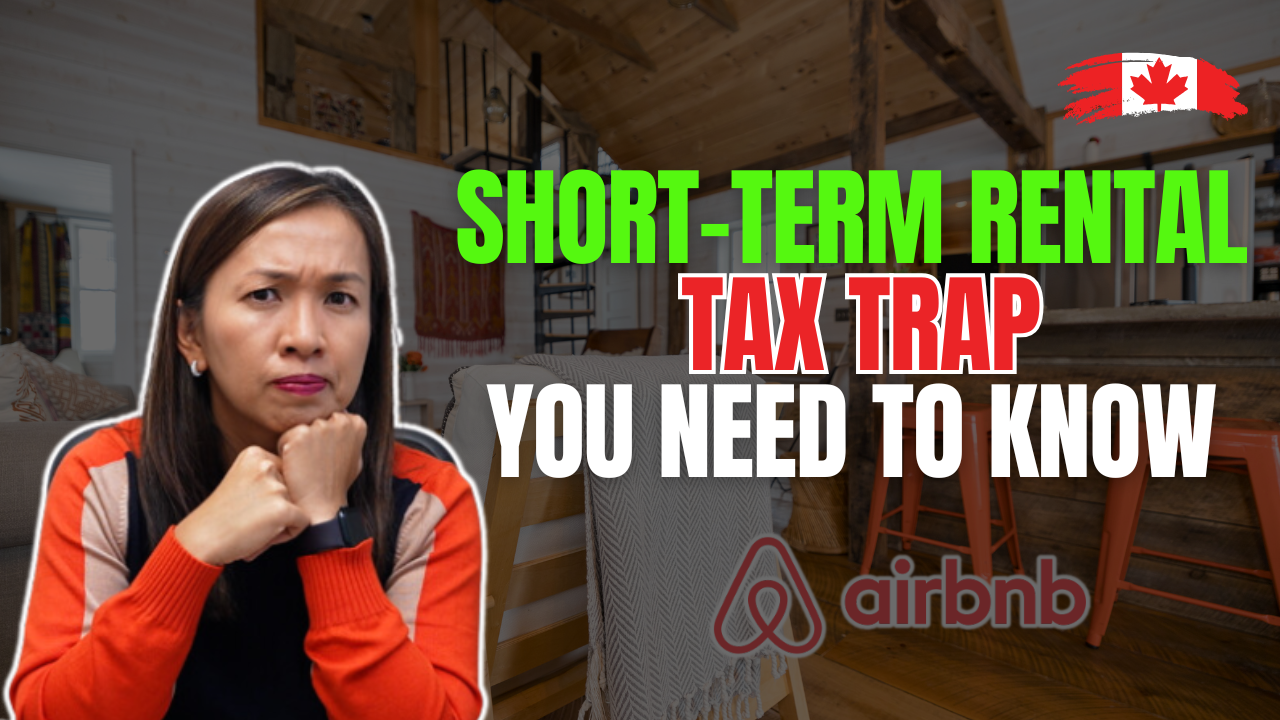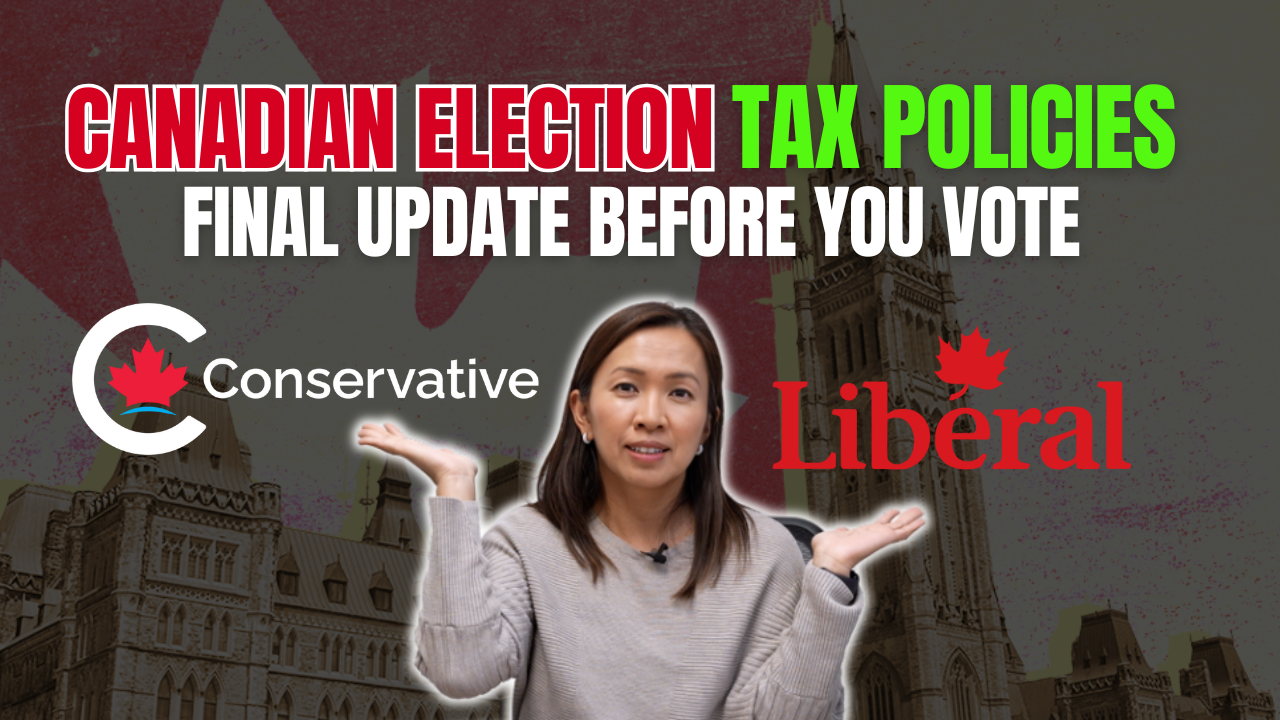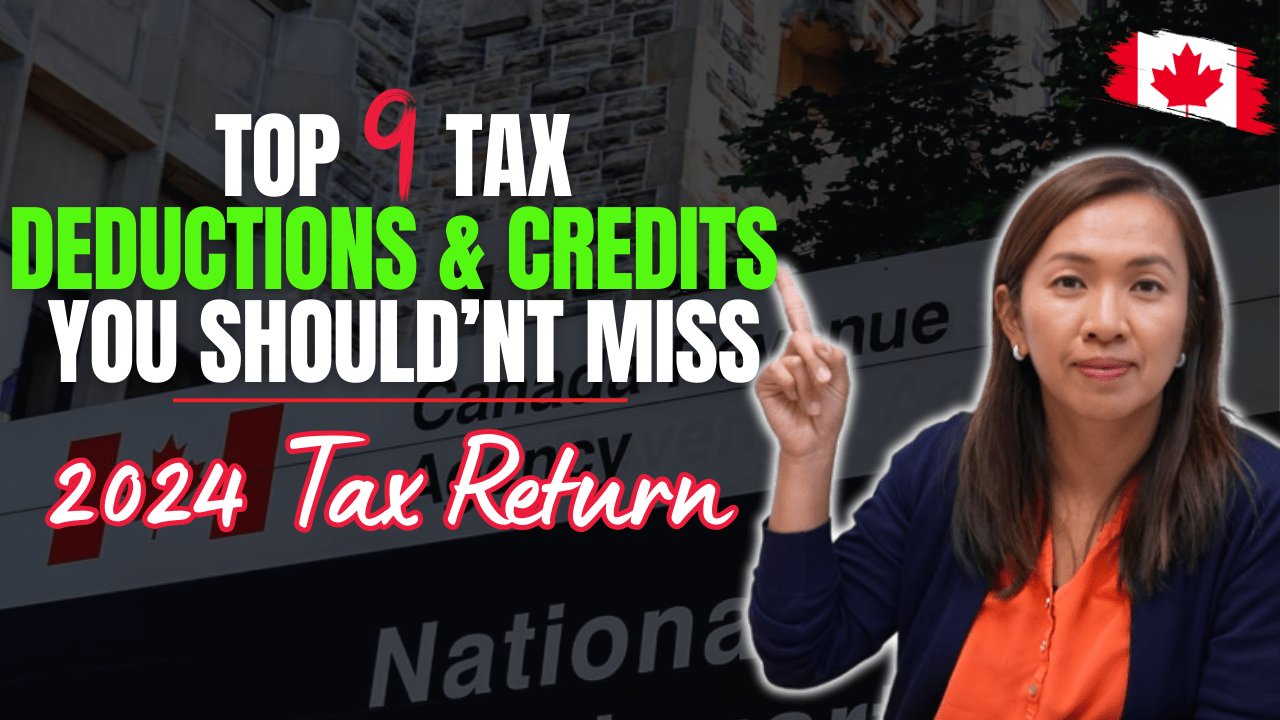How to Protect Your GST/HST Exemption When Leasing Property
Short-term rental leases of less than 30 days are generally subject to GST/HST. This means that short-term rental landlords should be charging GST/HST on these rentals and filing GST/HST returns accordingly.
Short-term rental landlords can also claim GST/HST paid on supplies, such as cleaning services, cleaning supplies, utilities, property management fees, and other related expenses. The GST/HST collected from rentals is offset by these input tax credits, and the net GST/HST is then reported on the GST/HST return, with any remaining balance payable to the government. You can check out my previous article on Airbnb taxes here
When a property shifts from long-term rental (GST/HST exempt) to short-term rental (subject to GST/HST), it is converted from an exempt residential property to a commercial property, making it subject to GST/HST.
The most significant difference between a residential exempt supply and a commercial property lies in the application of GST/HST upon the sale of the property. For residential resale properties, owners typically do not need to charge GST/HST on the sale. However, for commercial properties, GST/HST is charged on the sale regardless of whether the property is new or previously owned. If a buyer is purchasing the property for commercial use—such as continuing to operate it as a short-term rental—they may be able to claim an exemption from paying GST/HST on the purchase.
A recent court case, 1351231 Ontario Inc. v. The King, brings attention to the GST/HST implications when converting residential property from long-term to short-term rental and then selling it. Here’s a breakdown of the facts, legal issues, and the Court’s decision.
Background of the Case
1351231 Ontario Inc. purchased a condominium in Ottawa as an investment property in 2008. For the first nine years, it was rented out through a series of long-term leases, each exceeding 60 days, which qualified the rental income as an exempt supply for GST/HST purposes under Canada’s Excise Tax Act.
In 2017, the Taxpayer shifted strategy, listing the condo on Airbnb, where it was leased for stays under 60 days. This generated substantial short-term rental income in 2017 and 2018, marking a change from the property’s use as a long-term rental to a commercial activity under the GST Act.
In early 2018, the company sold the condominium without remitting any GST/HST on the sale, on the basis that the property is considered residential resale which is considered tax exempt.
Key Legal Issue: Was GST/HST Applicable to the Condo Sale?
The central question was whether the sale was taxable, as the property’s use shifted from long-term exempt residential leases to taxable short-term rentals. The Canada Revenue Agency assessed the Taxpayer for GST/HST, totaling over $77,000 on the sale, which led to this appeal.
The Excise Tax Act defines a “taxable supply” as one made in the course of commercial activity unless exempt. Given that the property’s use had shifted from residential to commercial short-term rental, the CRA argued that the condo sale should be treated as a taxable supply (a commercial property), subject to GST/HST.
In another word, at the time the condo was sold, CRA considered the property as a commercial property because it was operated as a short-term rental unit. Hence GST/HST was applicable.
Unless… the taxpayer can prove that the property does not meet any of the exemptions available. (I know it gets confusing, but hang in tight. I’ll attempt to explain.)
A residential complex is generally GST/HST exempt on resale, unless it falls under one of the “3 exemptions”. These exemptions define when a property loses its residential status and becomes commercial for tax purposes. If any of these exemptions apply, the property is treated as a commercial property, and GST/HST is charged on the sale.
Here’s how it works:
- If none of these exemptions apply, the property keeps its status as a “residential complex” under the law, meaning it stays GST/HST exempt at the time of sale.
- If any one of these exemptions does apply, the property loses its residential complex status, meaning the sale becomes a taxable commercial transaction, and GST/HST must be charged.
So, to clarify:
- These exemptions don’t protect the property from GST/HST. They actually remove the GST/HST exemption, making it taxable as a commercial property.
Three GST/HST Exemptions for Residential Property
When it comes to the GST/HST tax on properties, there are three main exemptions that could help property owners avoid extra taxes (GST/HST). These exemptions depend on how the property is used, especially if it’s being rented or sold.
1. Hotel or Similar Use Exemption
If a property is being used in a way that’s similar to a hotel, motel, inn, or other places where people stay short-term, it’s usually considered commercial instead of residential. This means it can lose its GST/HST exemption because it’s being used more like a business than a home. For example, if a condo is rented out nightly on Airbnb, it might fall under this exemption and be treated like a hotel for tax purposes.
In this case, the taxpayer began renting the condo through Airbnb for short stays, sometimes as short as a single night, and covered amenities like furniture, heating, and Wi-Fi. The Court determined that by using the condo in a hotel-like way, the property fit this exemption. This meant the condo was no longer seen as a “residential complex” for GST/HST purposes, shifting it to commercial property status.
2. Builder Exemption
The second exemption applies to people or companies considered “builders.” If someone builds or heavily renovates a property to sell or rent it, they may be treated as a builder under the GST/HST rules. Builders don’t get the same tax exemptions on their properties because they’re seen as creating new commercial supplies. So, if a person buys, fixes up, and then frequently rents or sells the property, they might lose the exemption.
Although this exemption often applies to those constructing or significantly renovating properties, the taxpayer here wasn’t treated as a “builder.” Since the taxpayer didn’t undertake substantial renovations with the intent to flip or redevelop the condo, the builder exemption didn’t apply in this specific case. This was not a factor that influenced the GST/HST decision here.
3. All or Substantially All Leases Less Than 60 Days Exemption
This exemption applies if the property is mostly rented out for very short periods—less than 60 days at a time. If nearly all the leases are short-term, the property is considered a commercial property and loses its residential GST/HST exemption. So, if someone rents a condo for only a few days each time, the property might not qualify for the tax break given to regular long-term homes.
This exemption applied because, by the time of sale, nearly all leases were short-term (under 60 days). The Court reviewed the condo’s use close to the sale date and found that most leases during that period were short-term Airbnb rentals. This triggered the exemption, categorizing the property as commercial. As a result, the condo lost its residential complex status, making the sale subject to GST/HST.
Arguments posted by the taxpayer
The taxpayer argued that because the condo had been leased long-term (over 60 days) for most of the ownership period, it should still qualify as a “residential complex” and therefore be GST/HST exempt. They believed the assessment should consider the entire ownership period, not just the most recent use.
However, the Court disagreed with this interpretation. The Court stated that the Excise Tax Act requires a point-in-time assessment—meaning the property’s status should be evaluated based on its use at the time of sale, not the historical pattern of use. Since, at the time of sale, the condo was primarily used for short-term rentals (less than 60 days), it lost its residential status under the Act and was treated as commercial, triggering GST/HST on the sale.
This point-in-time interpretation aligns with the Act’s intention to tax properties used in a commercial way, regardless of prior long-term use. The Court essentially ruled that a property’s GST/HST exemption status hinges on its use at specific moments, not across the whole ownership period.
Key Takeaways to Maintain GST/HST Exemption on Sale and Avoid “Change in Use” Tax
- Maintain Long-Term Use Consistently
To avoid self-assessment under the change-in-use rule, stick with long-term leases (over 60 days) throughout the ownership period if your goal is to keep the property GST/HST exempt. Switching to short-term rentals, even briefly, creates a taxable event that requires self-assessment and remittance of GST/HST on the property’s fair market value at that time. - Limit Short-Term Rentals, Especially Close to Sale
If you do use short-term rentals, avoid frequent or long periods of short-term leasing, especially near the time you plan to sell. Even a temporary shift to short-term use requires self-assessment and moves the property toward being taxed as commercial. Maintaining long-term leases up to and during the sale period helps ensure the property retains its “residential complex” status for GST/HST exemption. - Avoid Hotel-Like Features for Short-Term Rentals
If short-term rentals are part of your plan, limit hotel-like amenities such as providing furnishings, utilities, and other services typical of commercial lodging. These features make a property resemble commercial premises like hotels or motels, which further jeopardizes its residential classification. - Avoid Multiple Changes in Use
Changing the property’s use multiple times (e.g., alternating between short-term and long-term rentals) increases the risk of incurring GST/HST through frequent self-assessments. Once you switch to short-term rentals, reverting to long-term may not erase the need for remitting GST/HST on the prior change. Consistency is key.
By carefully planning rental terms and avoiding short-term leasing where possible, property owners can reduce the likelihood of triggering GST/HST through the “change in use” rule and maintain tax benefits on the final sale. Consult with a tax professional to navigate these rules precisely, especially when considering changes to the property’s use.
Rental Arbitrage as a work around
While rental arbitrage (where an individual rents the property to a corporation, which then subleases it on Airbnb) might seem like a workaround, it doesn’t fully eliminate the risk of GST/HST applying. Here’s why and what to keep in mind if considering this strategy:
- Ownership and Use Are Key for GST/HST
In the eyes of the CRA, the purpose of the property’s use is central. If the corporation is running short-term rentals through Airbnb, it’s still using the property for commercial activity, which is taxable. The CRA might treat this as a commercial use regardless of whether an individual or corporation is conducting the short-term rentals. - Risk of GST/HST on Change in Use Remains
Even with rental arbitrage, the property could still trigger a “change in use” if it shifts from long-term rental (by the individual) to short-term (by the corporation). This change could still require the individual to self-assess and remit GST/HST based on the fair market value at the time they start renting to the corporation for commercial purposes, making it difficult to entirely sidestep tax obligations. - CRA’s View on Schemes to Avoid Tax
The CRA has provisions that allow it to assess transactions where it believes the main purpose is to avoid tax (such as under the General Anti-Avoidance Rule, GAAR). If rental arbitrage appears structured mainly to avoid GST/HST, the CRA could challenge it, particularly if they see that the same property owner is essentially running short-term rentals under a different entity. - Potential Complexity and Costs
Creating a corporate entity and structuring leases solely to bypass tax on short-term rentals adds administrative costs, complexity, and legal risks. Moreover, if GST/HST is eventually assessed, it could add up significantly.
Bottom Line on Rental Arbitrage for GST/HST
While rental arbitrage could create some separation, it doesn’t eliminate the GST/HST risk due to change-in-use rules and CRA’s potential scrutiny. If the end goal is long-term residential use to secure the GST/HST exemption on sale, maintaining long-term leases directly may still be the most straightforward approach. Rental arbitrage may be more appropriate for income generation but doesn’t fully protect against GST/HST implications when shifting from long-term to short-term rentals.
Bottom Line for Short-Term Rental Owners: Protect Your GST/HST Exemption
Navigating the GST/HST rules around short-term rentals and property sales can be complex, with significant financial consequences if not handled correctly. If you’re considering a shift in how you lease your property or if you’re preparing for a sale, now’s the time to ensure you’re on solid tax ground.
Have questions? Let’s make sure you’re fully informed. Reach out today to consult with a tax professional who understands the intricacies of real estate and GST/HST. Protect your investment, optimize your tax strategy, and keep more of your hard-earned income in your pocket.
Until next time, happy Canadian Real Estate Investing.
Cherry Chan, CPA, CA
Your Real Estate Accountant





